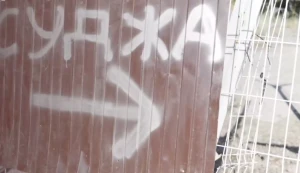
ISW outlines scenarios for Wagner’s future in Russia
Wagner PMC’s future is uncertain and may not include Yevgeny Prigozhin. Kremlin intends to lure forces to the Ministry of Defense
The Institute for the Study of War shared the information.
"The future of the Wagner Group is unclear, but it will likely not include Yevgeny Prigozhin and may not continue to exist as a distinct or unitary entity," the report says.
Also, Putin's address to Wagner commanders and soldiers indicates that the Kremlin intends to lure them to the Russian Defense Ministry. However, it is unclear how the Kremlin will organize Wagner PMC in its military structure, the Institute says.
In addition, experts do not rule out that the Kremlin may decide to keep Wagner solely to support operations in Africa or the Middle East and break up Wagner group of forces in Ukraine.
"Such scenarios may impact Wagner forces’ morale and combat effectiveness. Prigozhin claimed that Wagner commanders and personnel categorically opposed Wagner’s subordination under the Russian MoD and noted that the Russian military command would misuse experienced Wagner fighters as cannon fodder," the agency writes.
The Institute found out that Russian special forces threatened the families of Wagner PMC commanders during the coup, which could further provoke tensions and low morale.
Putin's speech on June 26 probably signaled a decisive break with Prigozhin, and it is likely that the Kremlin will try to replace him to distance itself from the leader's betrayal if Russia decides to keep Wagner as a separate unit.
Experts also believe that Putin may present Belarus as a refuge for Wagner mercenaries as a trap.
"The Kremlin will likely regard the Wagner Group personnel who follow Prigozhin to Belarus as traitors whether or not it takes immediate action against them. Putin’s acknowledgement that he made a personal promise, presumably that Wagner personnel who went to Belarus would be safe there, was remarkable. The long-term value of that promise, Putin’s speech notwithstanding, is questionable," ISW emphasizes.
Prigozhin's mutiny in Russia
For several months, there has been a conflict between Yevgeny Prigozhin, the financier of Wagner PMC, and the Russian Ministry of Defense. However, the situation escalated quickly on the evening of June 23.
Allegedly, Russian troops launched a missile attack on the Wagner base. Yevgeny Prigozhin, the leader of the Wagner PMC, announced a "march of justice" and stated that 25,000 mercenaries were heading to Moscow after the Russian leadership refused to hand over Defense Minister Sergei Shoigu and Chief of the General Staff Valery Gerasimov.
On Saturday, June 24, in addition to Rostov-on-Don, where they initially gathered around the headquarters of the Southern Military District, the Wagner group also took control of Voronezh. Their convoys, which had diverted from the Ukrainian border, were moving towards Moscow. Military aircraft and artillery under Shoigu's control attempted to stop them. The units of Wagner PMC were last spotted in the Lipetsk region. In Moscow itself, defensive positions were established, trenches were dug, and all security forces were mobilized.
However, on the evening of June 24, the press service of the self-proclaimed President of Belarus, Alexander Lukashenko, released a statement in which the head of the Wagner PMC stated that he was ready to stop the advance of his mercenaries' military convoys, which were already approaching Moscow, and to reach an agreement with the Kremlin. Prigozhin allegedly agreed on this during a conversation with Lukashenko.
Instead, Prigozhin announced that the Wagner group had stopped their advance and returned to their field camps before reaching 200 km from Moscow. He stated, "In a day, we covered a long distance, stopping only 200 km away from Moscow. During this time, no blood was shed. However, the moment may come when blood will be spilled. Therefore, taking full responsibility, we are turning our columns around and heading back to the field camps as planned."
Subsequently, Prigozhin and all his fighters left the headquarters of Russia's Southern Military District. Russian leader Vladimir Putin promised that Prigozhin would be able to go to Belarus, and Russia would close the criminal case against him.
According to CNN, US intelligence knew about the plans of the Wagner leader to go against the leadership of the Russian regular army, but did not think that the escalation would happen so quickly.
Analysts examining the data on visits to Google News by Russian internet service providers between June 23 and 24, during the coup, have arrived at the conclusion that a minimum of 5 telecommunications companies, including Rostelecom, U-LAN, and Telplus, blocked the Google News service, which collects news from various sources.
On June 26, Russian President Vladimir Putin made a speech in which he commented on Prigozhin's mutiny - the Russian president gave Wagner PMC fighters 3 options for future actions.
On June 26, Wagner leader, Yevgeny Prigozhin, said that the main goal of the mutiny was "to prevent the destruction of the Wagner PMC, not to overthrow the government" and called it a "march of justice." He also claimed that the offensive on Moscow had stopped because the mercenaries "did not want to shed much blood."
- News












































